I Heard Freedom Calling
One Stop on the Underground Railroad
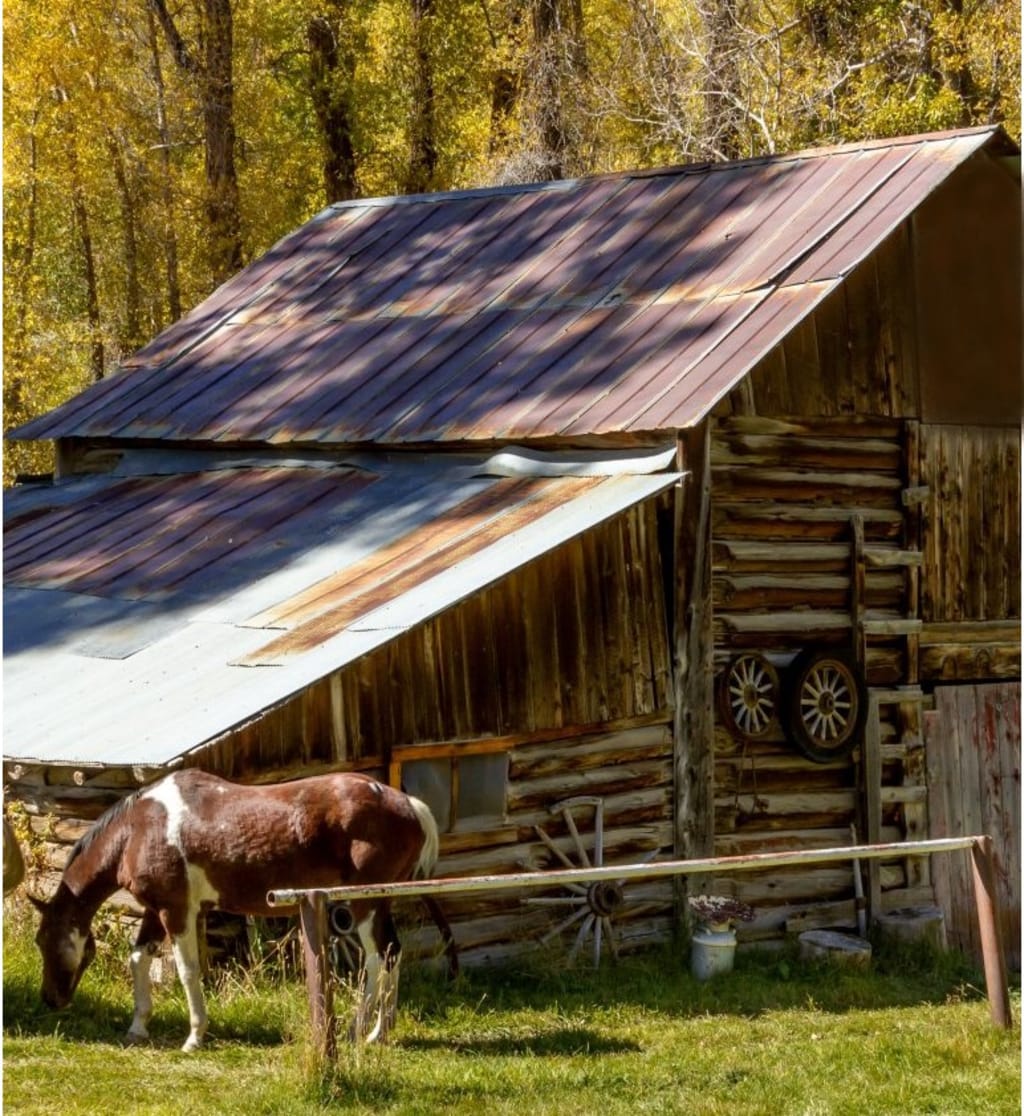
“I hate to think that I slept through it all, but they mostly came at night to avoid the authorities,” wrote Uncle Martin. “Nighttime also protected the helpers, so they wouldn’t be caught. I was told granddad didn’t know how he was going to tell grandma what he had volunteered for. But Grandma Jean was already secretly helping those she encountered that seemed in need or afraid.”
So far, I wasn’t sure what Uncle Martin was talking about in this letter, so I continued on.
“Paul Michael Sanderson the third, Attorney at Law. He was your great grandfather. The mistreatment of colored people deeply disturbed him. Justice For ALL is why he said he decided to become a lawyer. He could never reconcile his faith in God with treating people bad no matter what they looked like. “Being from the south did not mean our family had to have slaves,” he said. And then, he followed it up with, “our family always paid a fair wage for any help we got.”
But granddad wanted to do more than just offer a few of them a dollar or a hot meal. So, he hired some men to work in the old barn enlarging the root cellar. Grandma was a pro at making preserves and canning vegetables; so, the construction didn’t draw suspicion from those who wanted to make trouble. The men were drenched with sweat at the end of the day and left with their bellies full of grandma’s cooking. Granddad was one of the few who would hire them. For many years, I witnessed them stopping granddad or grandma in town to thank them.
I don’t recall how long it took to complete the cellar, especially since I no longer lived in their house. However, I do remember granddad carrying what I thought were strange items to be taking down into the root cellar for storage. He had wooden cots, blankets, a few chairs and several oil lanterns. I was more curious about bugs and frogs than about that. Still, I loved the novelty of being underground and enjoyed the difference in the temperature in the summertime. In the beginning, grandma would send me to the cellar to put jars on the shelf or bring them up for my mother. Then one day, there was a door covering the opening and I was told that it wasn’t a place I should be playing or running in and out of. What had changed? I did not know back then. I suppose because I was so young.”
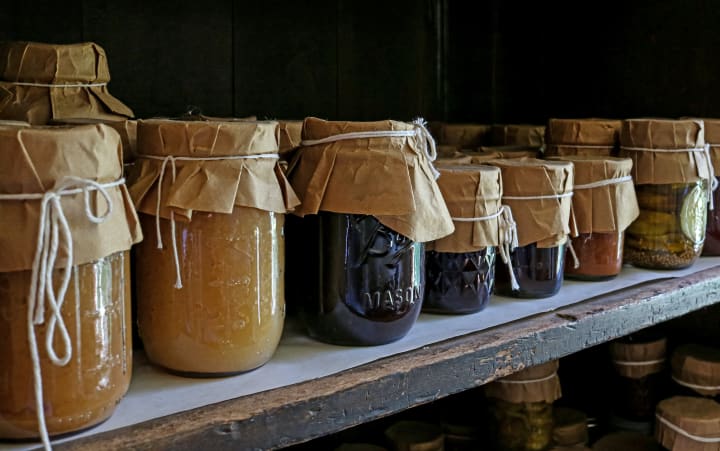
Oh, wow! Is he talking about what I think he is?
“Honey, come here you must read this,” I yelled not knowing I was alone in the house.
Sadly, my parents died in a car accident at the end of my junior year in college and Uncle Martin, my dad’s older brother who had no kids of his own, became my surrogate and mentor. We got along well, but he never shared any of this with me.
About two weeks ago, my hands shook as I opened the letter from the attorney’s office. I hadn’t noticed the address. The crisp envelope with script printing in the corner and my formal name and address so perfectly printed in black ink could be in regard to so many issues. It was short and clear and stunned me like a police taser might. My uncle, Martin, had died and left a will and a handwritten letter for me. At the time, I thought my uncle had died a few years ago when a Christmas card was returned to me unopened. I felt tremendous guilt for not being there for him in his final days. I suppose my own parents’ death had something to do with it. My tumultuous life situation is the excuse I chose to use.
When Mr. Langley asked, “can you make the trip to Pennsylvania?” I had no idea what I would find. We met here at the house. I barely recognized it and felt like a foreigner.
“All the important papers are in here,” he said handing me an accordion file.
He was not as old as my uncle but seemed to have known him well. He also knew my father and offered his condolences for both. He asked how I was doing and waited for an answer. No emotion registered on my face.
“I’m fine,” I replied.
“Ok. The will is fairly simple. It simply says that the property is left to you. I helped your uncle draw it up.”
I barely heard his words and gave no response. My wife, Lindsay, jumped right in and said, “we appreciate that very much.”
“You said he also wrote me a letter.”
“Yes, he did, it’s in there with all the important papers.”
Lindsay, had gone with him to tour the house and the property to give me time alone to read Uncle Martin’s letter. Since there was no answer to my shouts, I decided to keep reading.
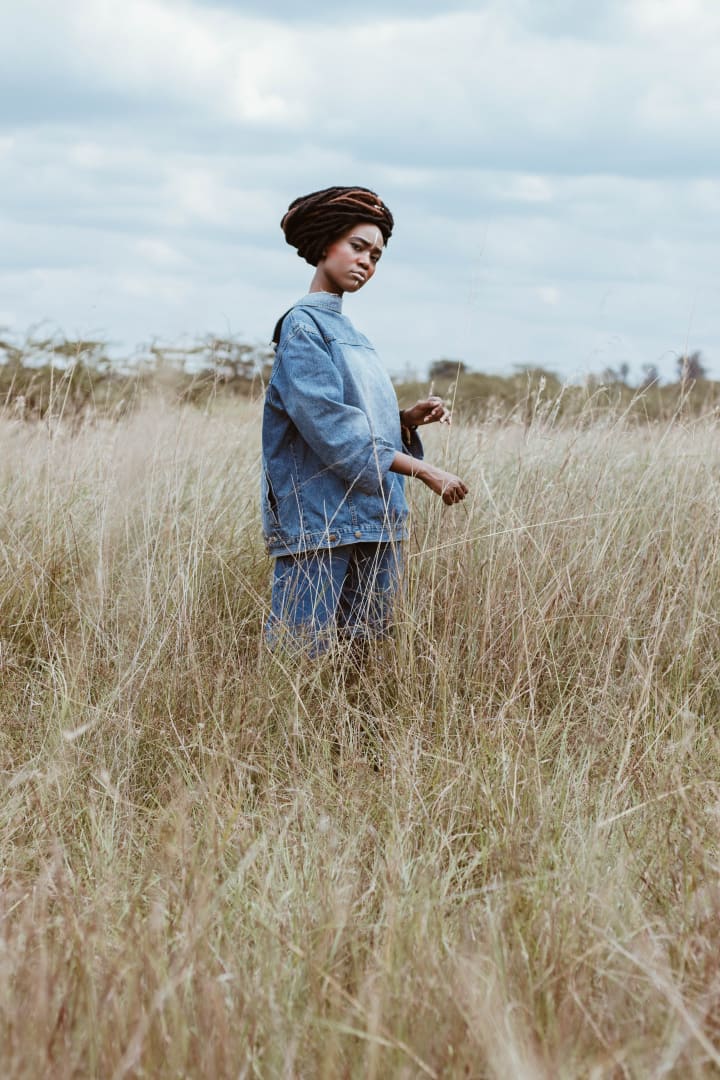
“One holiday evening, Grandma Jean began to tell me a story. She said she spotted a woman coming across the field that she didn’t recognize. No one had sent word that she was coming. She met her in the yard and handed her a broom even though she looked quite worn out.
“Make like you are doing some work for me until the sun starts to go down,” she told her.
“Yes ma’am,” the woman responded.
“There’s a pitcher of water in the barn if you are thirsty.”
“Thank you,” she said as she made her way over while pretending to sweep.
Then, though she could barely walk, Grandma Jean paused her story saying "we need to go out to the barn.
“The barn? For what? I don’t need to see the barn.”
“Yes you do,” she commanded.
"I followed like a child being forced to go to the dentist’s office. She pulled back the doors and marched right in. It looked quite well kept with a hay loft hay above and stables for animals below. Only 2 of them looked used. The third had the floor cleared and I saw the door. She grabbed the crowbar from a hook and asked me to pry it up."
“Why do you want to go into the canning cellar?” I asked.
“We did use it for my canning, but it was built with another purpose.”
“What kind of purpose?”
“Come down and see, son,” she said as she grabbed hold of my arm.
"I was glad she was holding onto me. What could my grandparents be hiding in this cellar in the barn?"
“These lights were installed much later,” she said. “But, Marty, this is where your grandparents sheltered slaves as part of the Underground Railroad.”
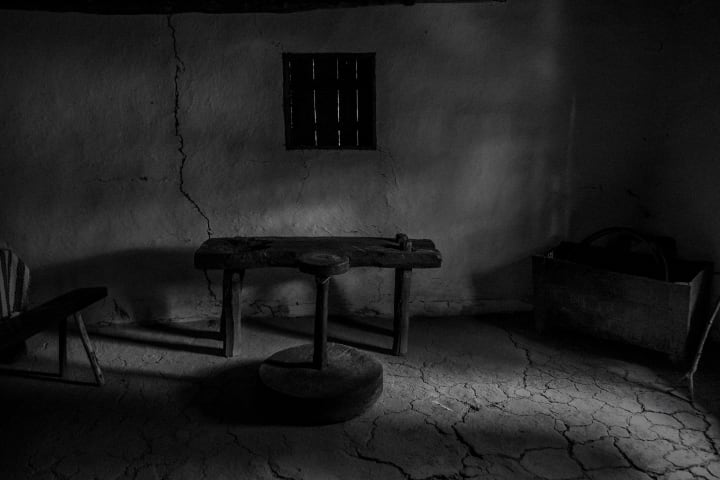
“What? Are you serious, grandma?”
She gave me a sheepish smile; then, continued the story.
“At dusk, I took a basket of food and headed toward the barn,” she said.
“I met the woman inside and motioned to her to follow me. I swept away the hay and then used that same crowbar to pry up the trap door. We came down the steps in silence. I lit one of the lamps after setting down the basket and introduced myself.”
“Hello, I am Jean Sanderson and you are?”
“Harriet, ma’am.”
“Nice to meet you Harriet. Have you traveled far?”
“Yes ma’am. From Maryland.”
“Well, Harriet, I’ve brought some food and we have a cot for you to sleep on and I expect you will be quite safe here.”
“Thank you, ma’am.”
“Please, call me Jean.”
“Yes ma’am, uh, Ms. Jean.”
“It turns out that Harriet was the fourth runaway slave to be sheltered in your great grandparents’ root cellar, and at the time, I had no idea who grandma was talking about nor why she was sharing this story,” Uncle Martin penned.
“Come back anytime you need to Harriet,” said grandma. And she did. She brought many others who needed a refuge on their own journey to freedom."
"I never met Harriet," he explained, "but Grandma Jean got to know her well. They bonded in that root cellar that was fashioned for a greater purpose than preserving fruit and vegetables. Grandma and grandpa were preserving human lives. 106 to be exact. “She was no different than I,” said grandma. She wanted to live on her own terms. “Doesn’t your dog pull against the leash?” grandma would say. “Don’t the inmates count the days left in their sentence?” grandpa chimed in. “Every living creature strives, longs to be free. It’s etched in our genes. It seems to grow in us as we grow. Children test the boundaries and teenagers of every race fight to break through them no matter the cost.”
Uncle Martin continued saying, “The details are all there in the accordion file. They kept track of everyone, their names, their former owners, where they were going from here, etc. It’s all there as best they knew. You’ll see the fourth name on the list is none other than Harriet Tubman. Your father and I kept our word to our parents and grandparents that we would not share the information because they wanted no notoriety. But, now it is for you to do whatever you wish with the information. You can share it, publish it or continue to keep it to yourself.”
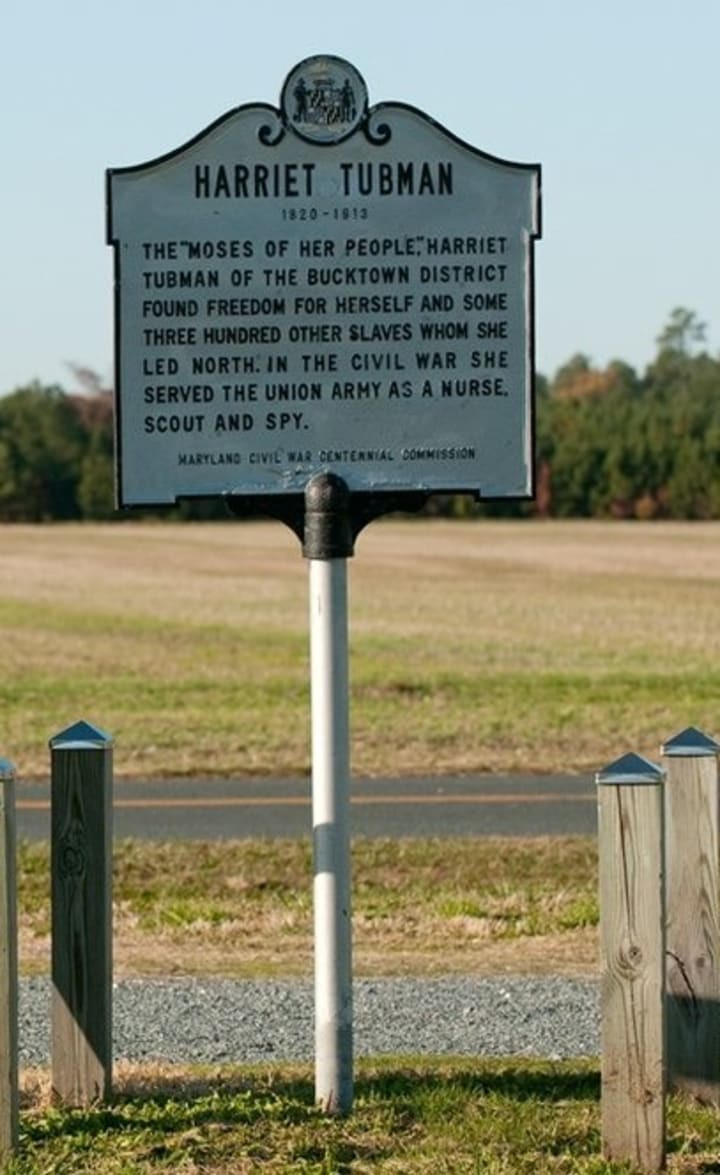
Wow! My great grandparents did that? They risked their lives for people they did not even know? That’s amazing. How strange that these details were evoking such strong feelings within me. Did Uncle Martin try to tell me this when he was alive, I wondered? Why had I not paid attention? I tried to digest the magnitude of this information.
I jumped up and headed for the front porch to see where Lindsay had gone. No sooner had I gone outside when she exited the barn yelling something and running toward me. We met up, each telling the other what my great grandparents had done. Mr. Langley had shown her the cellar. “William, there are names carved in the wall and the year 1849. Harriet Tubman’s name is on the wall,” she exclaimed. As I entered, I also noticed the shelf that still held a few jars of preserves and some old tins of coffee and tea. What an excellent disguise.
We set to work cleaning up the property and prepared it for our family. Memories came flooding back and I allowed them to flow freely. I began to feel all the walls I had erected around my heart disintegrating. Plus, I finally mourned the deaths of my parents and realized how much I missed them.
Together, Mr. Langley and I found Harriet Tubman’s great grandniece and invited her to visit the property. I contacted the historical register and gave them copies of the documents. I was standing in the barn one afternoon with people from the chamber of commerce when I experienced overwhelming pride for what my great grandparents had done. I respected my uncle for keeping his commitment to his parents and I recognized my own liberty from the bondage of grief.
My great grandparents appreciated that every human being deserves the chance to make the best life they can for themselves and that we should each put aside our selfish desires and give some help to our neighbor, no matter their origin or color. Every slave felt bondage on a far greater scale than any of us has experienced.
“Yes, you can do it, once you realize that it isn’t about you,” said Mr. Langley when I disclosed that I would like to run for senate. He was there with my wife, my son and I at a Black Lives Matter rally where I was actually one of the guest speakers. Me, a formerly very entitled white guy from Pennsylvania was speaking on Freedom and the Matter of Melanin. I know the crowd wanted to know how I got there, but, then, so did I.
About the Creator
Enjoyed the story? Support the Creator.
Subscribe for free to receive all their stories in your feed. You could also pledge your support or give them a one-off tip, letting them know you appreciate their work.






Comments
There are no comments for this story
Be the first to respond and start the conversation.